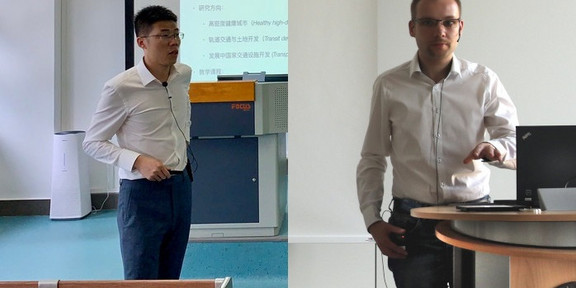New DAAD funded collaboration

In a joint project co-funded by DAAD (Germany) and the Research Grants Council (Hong Kong) under the Germany/Hong Kong Joint Research Scheme, we will apply an intercultural perspective to contribute to the methodological and empirical understanding of how people experience everyday spaces and places. We will thereby look into different scales including dwelling, neighbourhoods, and public spaces. Our collaboration brings together a research team from Germany and Hong Kong with expertise in urban planning, human geography, and geo-information science. Urban planners and geo-information scientists (GIScientists) recently became interested in studying experienced space and place. Planners aim to transform anonymous space into an intimate place, and GIScientists aim to formally represent space and place. The two approaches are related: Planning practices feed into the methodological research of place in GIScience, which, in turn, enhances empirical evidence for planning practices in place-making. Our city life is facing challenges on various fronts due to the globalised lifestyle which creates rich human-centric data. It requires an in-depth understanding of how people experience space and place using intercultural perspectives. Our project combines findings from Asian with European and American contexts, which will make an innovative contribution to space and place research.
The project teams are based at the School of Spatial Planning at TU Dortmund University and at the Department of Urban Planning and Design of The University of Hong Kong. Our Spatial Modelling Lab team thereby consists of Dr René Westerholt (Co-I), as well as Liudmila Slivinskaya and Víctor Cobs Muñoz (both Research Assistants and PhD Students). The Hong Kong team comprises Dr Guibo Sun (Co-I) and Jianting Zhao (Research Assistant and PhD Student). Our project involves case studies that will be conducted both in Dortmund and Hong Kong. In addition, we will establish a joint PhD seminar for both Phd Students from Dortmund and Hong Kong in order to initiate and foster an ongoing collaboration and exchange between both institutions, even beyond the immediate project team.

